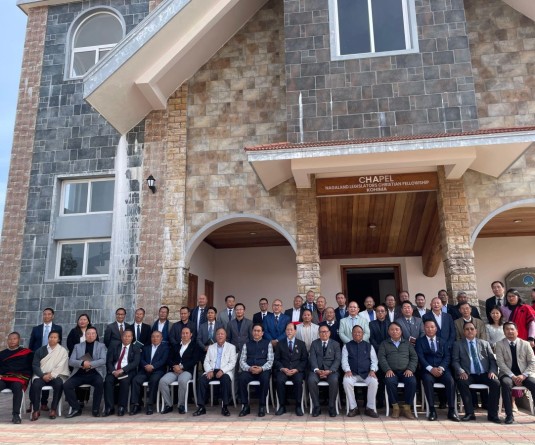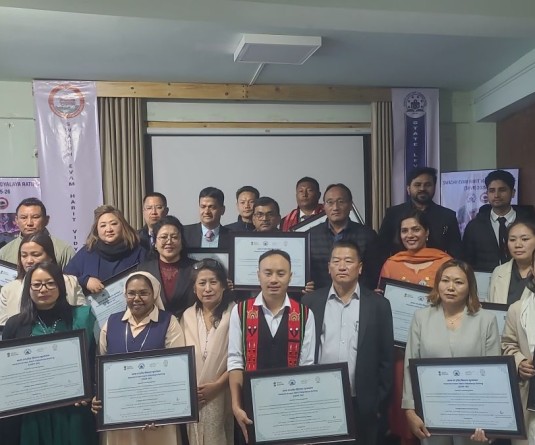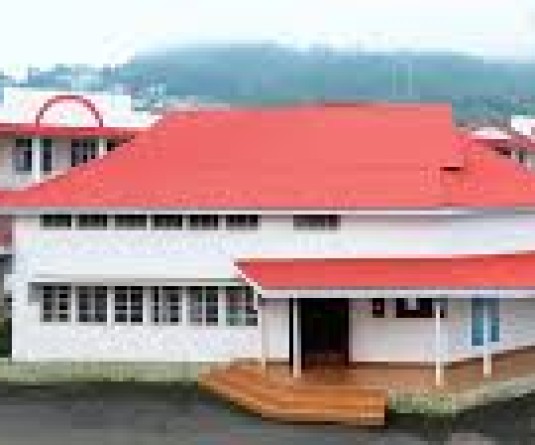
Dimapur, November 7 (MExN): In a poser to the Nagaland State Government, the WC, NNPGs today asked whether the latter would choose to remain in a state “electoral mentality indulging in impractical political innuendos” or facilitate the expressed will of the people of Nagaland with regard to Indo-Naga political issue.
“This is the perfect God gifted time for the State Government to facilitate the expressed will of the people of Nagaland,” the Working Committee, Naga National Political Groups (WC, NNPGs) stated in a press release from its Media Cell.
“As people's elected representatives, it is time to be real statesmen, agents of inter-generational reformers,” it said, noting that the State Government is a ready facilitator, a “constitutional arm and also privy to Gol position.”
The WC, NNPGs gave the poser in the backdrop of “unprecedented” formation of the “opposition-less” government in Nagaland.
“This unprecedented step, burying all differences, is the clearest signal to the Government of India (Gol) that the Nagaland government, Naga tribes and Civil Societies are ready and prepared for the much awaited Indo-Naga political solution,” it said.
While appreciating the decision of NDPP, NPF, BJP elected legislators and all political parties for the formation, it asserted that if the intention is real, the true “meaning of opposition-less government is to translate words into practical action.”
Meanwhile the WC, NNPGs asserted that the arrival of AK Mishra as the new representative of the GoI has given “greater optimism and hope to our people” and that it is time for Prime Minister Narendra Modi and Home Minister Amit Shah to announce an “honorable and acceptable political solution to Indo-Naga conflict.”
Giving a context to its poser and assertion, the Committee maintained that “all the negotiating groups have concluded the talks as on October 31, 2019.”
“This is the official position of the Gol. Working Committee NNPGs and Gol 'Agreed Position' and the subsequent ‘Status Paper’ is the result of thousands of consultative hours put in by WC leaders with Naga tribal leaders, current and past Naga legislators and parliamentarians, Naga intellectuals, neighboring community leaders in Manipur, Assam and Arunachal Pradesh,” it said.
It is with this clear and firm understanding of the past history, present scenario and future partnership that both Nagas and Gol will and must entrench relationship,” it added.
The blueprint of the proposed Indo-Naga political solution is not “Nagaland-state centric” and guarantees “adequate political and administrative space and scope for divided Nagas in Manipur, Assam and Arunachal Pradesh to protect ancestral land, resources, culture and traditions through redefined political structure,” the Committee highlighted.
It further noted that while there is a great necessity to promote, preserve and strengthen Naga history, identity, culture, customs and traditions beyond the present Nagaland state, the reality and the practical existence of Nagas under various “political and administrative boundaries cannot be ignored as the Gol has made it very clear that state boundaries, as of now, won't alter.”
The WC, NNPGs also pointed out that Nagaland government represents the people of sixty constituencies in the State.
Accordingly, desire and aspiration of the fourteen indigenous Naga tribes, minority tribes and non-indigenous communities of Nagaland, the Nagaland Tribes Council (NTC), Nagaland Gaon Bura Federation (NGBF) Eastern Naga People's Organisation (ENPO), Central Nagaland Tribes Council (CNTC) etc. must be respected, it said.
It also wondered who is acting as the stumbling block between Nagas and Gol in the impending solution.
“The real Naga identity is much more than flag or constitution, if it is the real Naga identity, why did they not resolve it in 1997 in the initial years of negotiations?,” the WC, NNPGs asserted, adding that the issue “dug out after 20 years of talks when WC signed Agreed Position with Gol on November 17” and the latter recognised the “right to Naga self determination in consonance with their distinct history and identity.”
The WC, NNPGs said that the issue had become an “increasingly obsessive component for some,” indicating that it is “something else all together.”
In this context, the Committee said that today, Nagas leaders “must fight for and retain real Naga identity that many have lost in the hunt for name, fame and power.” “Naga tribes and history will one day unearth names of leaders of today, who either assisted or played spoilsport in the imminent Indo-Naga political solution,” it added.
“Naga tribes have expressed utmost urgency for practical and honorable solution to save future generations from further catastrophic existence,” it argued.
To this end, the Committee said that true meaning of opposition-less government is to translate words into practical action and State Government must “facilitate the expressed will of the people of Nagaland.”






